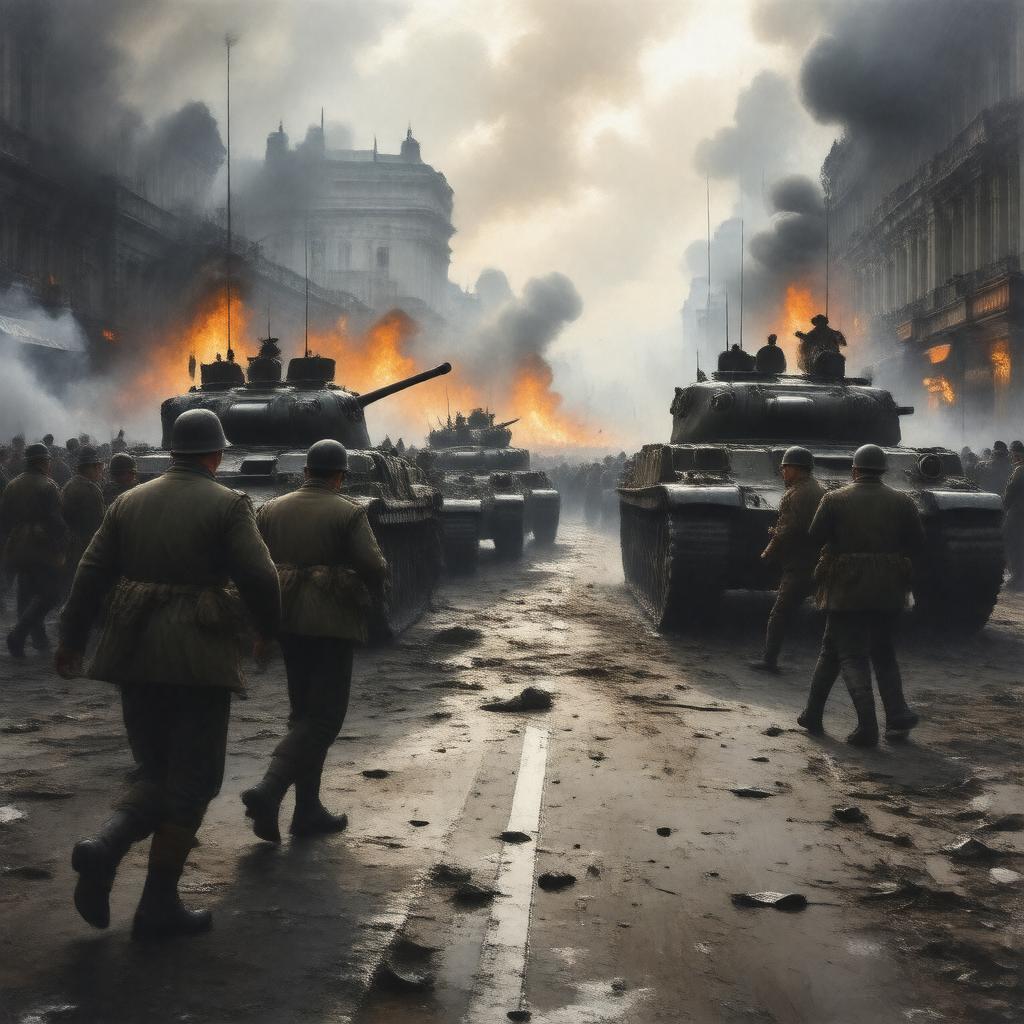Prompt
"Create an image depicting a dramatic and intense scene of the 1956 Hungarian Revolution, specifically showing a group of Hungarian protesters facing off against Soviet tanks in a Budapest street, with smoke and flames rising in the background, and a sense of chaos and urgency in the air, in a gritty and realistic style."

